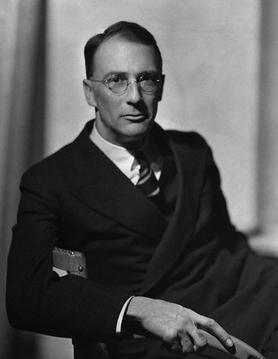
C.S. Forester was the pen name used by the British author Cecil Louis Troughton Smith. He is best known for a series of novels featuring Horatio Hornblower, a Royal Navy officer during the Napoleonic Wars.
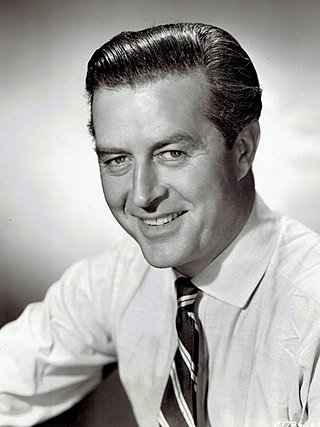
Ray Milland was a Welsh-American actor and film director. He is often remembered for his portrayal of an alcoholic writer in Billy Wilder's The Lost Weekend (1945), which won him Best Actor at Cannes, a Golden Globe Award, and ultimately an Academy Award—the first such accolades for any Welsh actor.

The Barretts of Wimpole Street is a 1934 American romantic drama film directed by Sidney Franklin based on the 1930 play of the same title by Rudolf Besier. It depicts the real-life romance between poets Elizabeth Barrett and Robert Browning, despite the opposition of her abusive father Edward Moulton-Barrett. The film was nominated for the Academy Award for Best Picture and Shearer was nominated for the Academy Award for Best Actress. It was written by Ernest Vajda, Claudine West, and Donald Ogden Stewart, from the successful 1930 play The Barretts of Wimpole Street by Rudolf Besier, and starring Katharine Cornell.

Charles Laughton was a British and American actor. He was trained in London at the Royal Academy of Dramatic Art and first appeared professionally on the stage in 1926. In 1927, he was cast in a play with his future wife Elsa Lanchester, with whom he lived and worked until his death.
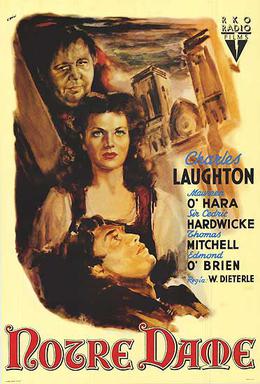
The Hunchback of Notre Dame is a 1939 American romantic drama film starring Charles Laughton and Maureen O'Hara. Directed by William Dieterle and produced by Pandro S. Berman, the film is based on Victor Hugo's 1831 novel. The film is also noted for being the first film ever shown at the Cannes Film Festival before the rest of the festival was cancelled due to the start of World War II.

The Big Clock is a 1948 American thriller directed by John Farrow and adapted by novelist-screenwriter Jonathan Latimer from the 1946 novel of the same title by Kenneth Fearing.
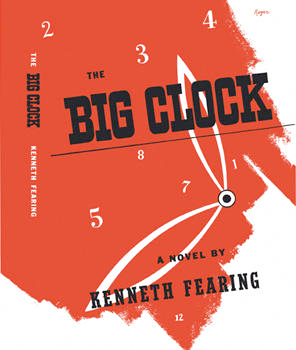
The Big Clock is a 1946 novel by Kenneth Fearing. Published by Harcourt Brace, the thriller was Fearing's fourth novel, following three for Random House and five collections of poetry. The story, which first appeared in abridged form in The American Magazine as "The Judas Picture", was adapted for three films: The Big Clock (1948) starring Ray Milland, Police Python 357 (1976) starring Yves Montand, and No Way Out (1987) starring Kevin Costner.

The Milky Way is a 1936 American comedy film starring Harold Lloyd. Directed by comedy veteran Leo McCarey, the film was written by Grover Jones, Frank Butler and Richard Connell based on a play of the same name by Lynn Root and Harry Clork that was presented on Broadway in 1934.

Payment Deferred is a crime novel by C.S. Forester, first published in 1926.

Fashions of 1934 is a 1934 American pre-Code musical comedy film directed by William Dieterle with musical numbers created and directed by Busby Berkeley. The screenplay by F. Hugh Herbert and Carl Erickson was based on the story The Fashion Plate by Harry Collins and Warren Duff. The film stars William Powell, Bette Davis, Frank McHugh, Hugh Herbert, Verree Teasdale, and Reginald Owen, and features Henry O'Neill, Phillip Reed, Gordon Westcott, and Dorothy Burgess. The film's songs are by Sammy Fain (music) and Irving Kahal (lyrics). Sometime after its initial release, the title Fashions of 1934 was changed to Fashions, replacing the original title with an insert card stating "William Powell in 'Fashions'".
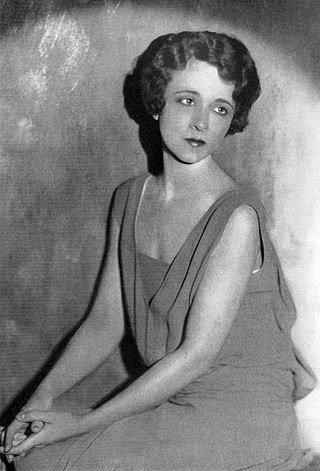
Bergetta "Dorothy" Peterson was an American actress. She began her acting career on Broadway before appearing in more than eighty Hollywood films.

Verree Teasdale was an American actress born in Spokane, Washington.
They Just Had to Get Married is a 1932 American pre-Code comedy film directed by Edward Ludwig and starring Slim Summerville, ZaSu Pitts, Roland Young, and Verree Teasdale.

Skyscraper Souls is a 1932 American pre-Code romantic drama film starring Warren William, Anita Page, Maureen O'Sullivan, Gregory Ratoff, and Verree Teasdale. Directed by Edgar Selwyn, it is based on the 1931 novel Skyscraper by Faith Baldwin.

A Modern Hero is a 1934 American pre-Code romance drama film starring Richard Barthelmess and directed by G. W. Pabst. It is based on the novel with the same title by Louis Bromfield. It was Pabst's only American talking film and the next-to-last film that Barthelmess made under contract to Warner Brothers.

First Lady is a 1937 film about behind-the-scenes political maneuverings in Washington, D.C. directed by Stanley Logan and starring Kay Francis, Preston Foster, Anita Louise, Walter Connolly and Verree Teasdale. Francis and Teasdale portray bitter rivals in their pursuit of the title role of First Lady. The picture is based on the 1935 play of the same name by George S. Kaufman and Katharine Dayton.

Goodbye Love is a 1933 American pre-Code comedy film directed by H. Bruce Humberstone and starring Charles Ruggles.
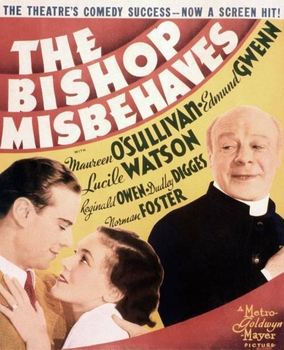
The Bishop Misbehaves is a 1935 American comedy crime film directed by E. A. Dupont and starring Edmund Gwenn, Maureen O'Sullivan and Lucile Watson. It was based on the 1934 play of the same title by Frederick J. Jackson. Dupont made the film after signing a one-film contract with Metro-Goldwyn-Mayer, having made his first American sound film the year before with Universal Pictures. It is also known by the alternative title The Bishop's Misadventures.

The Firebird is a 1934 American murder mystery film starring Verree Teasdale, Ricardo Cortez, Lionel Atwill and Anita Louise, directed by William Dieterle and produced and released by Warner Bros. It is based on the 1932 play by Lajos Zelahy. The Firebird suite by Igor Stravinsky is heard occasionally during the film.

The Sap from Syracuse is a 1930 American pre-Code comedy film directed by A. Edward Sutherland and written by John Griffith Wray, Jack O'Donnell, John Hayden and Gertrude Purcell. The film stars Jack Oakie, Ginger Rogers, Granville Bates, George Barbier and Verree Teasdale. It was released on July 26, 1930 by Paramount Pictures. The film was released under the title The Sap from Abroad in the United Kingdom.



















